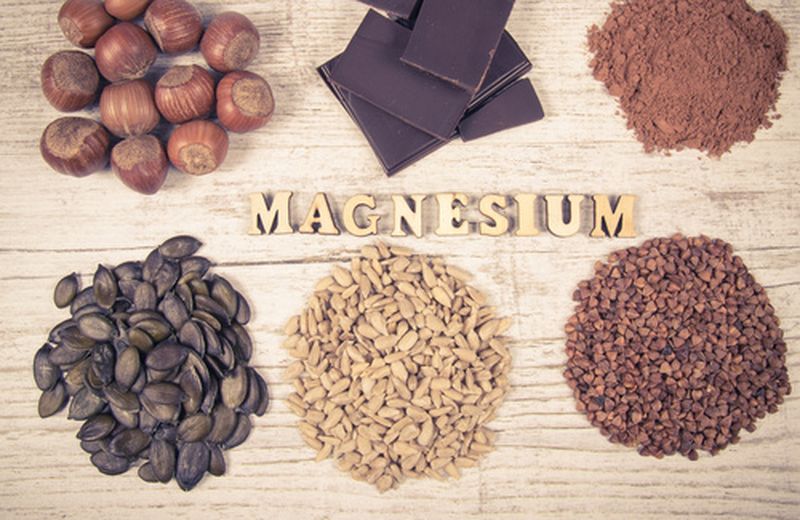Magnesium: a mineral against depression
Also known as the “anti-stress mineral”, magnesium is a real balm. It brings extraordinary benefits to the psycho-physical well-being of our body and acts positively with respect to depression

Magnesium is a mineral that plays an important physiological role for the human body: just think that it acts as an activator of about 300 enzymes, which regulate fundamental metabolic processes. The body content of magnesium in the adult organism is about 20 – 28 g: 60% is present in the bones, 39% in the tissues and about 1% in the extracellular fluids.
There are, however, some periods in life when significant amounts of magnesium can be lost or consumed. Prolonged stressful situations typical of the hectic modern life, excessive sweating (especially if linked to intense physical activity), severe burns or injuries , prolonged diarrhea and vomiting, debilitating diseases . For these reasons it is therefore often necessary to intervene with its integration.
Magnesium: functions and properties
Magnesium is used in oligotherapy for its numerous therapeutic properties: it relaxes the nervous system; carries out an antidepressant action , treats cardiovascular pathologies ; improves cell regeneration; increases tissue elasticity and eliminates harmful calcifications of soft tissues and joints.
1) Antidepressant and calming action on the nervous system
Magnesium stimulates nervous function, favoring the transmission of impulses: at the intracellular level, it activates hexokinase, an enzyme that converts glucose into glucose-6-phosphate , the first step in glycolysis (process through which sugars are “burned” to produce energy), necessary to supply energy to all cells; in particular those nerve and muscle that consume a large amount.
Among the many functions exercised, this precious mineral stimulates the production of serotonin , an endorphin that acts on specific receptors in the brain, and which has an analgesic, antidepressant and mood stabilizing action.
Stress tends to deplete magnesium reserves because the body uses it for its calming and antidepressant capacity. In fact, its deficiency produces depression , nervousness, anxiety , nervous tics and insomnia .
Also in pre-menstrual syndrome and in menopause , due to hormonal imbalances, significant drops in magnesium levels have been found, with consequent depression, a sense of inadequacy and irritability .
Find out what Magnesium Supreme is and what it is for and any contraindications
2) Antispasmodic and relaxing action on the muscles
Magnesium stimulates muscle functions and normalizes the heart rhythm and prevents cardiovascular disease: a deficiency of this mineral produces muscle tension and cramps. Hypomagnesemia can produce arterial hypertension and would also seem to favor the onset of atherosclerosis, especially in the case of a diet rich in cholesterol. Due to these properties it is indicated to relax smooth muscles in case of irritable bowel (it favors its functionality, with a delicate laxative effect), headache caused by nervous tension, tachycardia , palpitations and menstrual pain .
3) Remineralizing action
Magnesium is essential for the process of mineralization and development of the skeletal system . It strengthens the enamel of the teeth and together with calcium and phosphorus participates in the construction of the skeleton. In fact, about 70% of the body’s magnesium is found in the osteoarticular system.
Magnesium: its natural sources
“I learned about the only two remedies for pain, sadness, paturnias and similar wounds of the human heart: they are chocolate and time .” These are the words of Tommaso Landolfi, one of the most important Italian writers of ‘900 which provide us with a clue to the greatest source of magnesium among foods.
Among the other foods rich in magnesium we remember, in fact, chocolate, fresh green vegetables (being an essential element of chlorophyll), legumes and whole grains (because more than 80% is removed by refining treatments), soy, figs, corn, apples, oil seeds, in particular walnuts and almonds, bananas .
Magnesium is also present in fish , garlic , tofu , peaches and apricots .
Overall, diets rich in vegetables and whole grains have higher magnesium content than diets rich in meats, dairy products, and refined foods.
The Mediterranean diet requires a consumption of 254 mg of magnesium per day . While the intake of magnesium taken through water is variable, and has been little quantified: on the basis of a consumption of one liter per day , a quantity ranging from 1 to 50 mg can be assumed . Magnesium, as well as through food and water, can also be taken in the form of a natural supplement .
In healthy subjects, the magnesium intake is from 3 to 4.5 mg / kg ( 210 – 320 mg / day ), sufficient for maintaining the balance. The recommended intake for the Commission of the European Communities (1993) is 150 to 500 mg / day .




























+ There are no comments
Add yours